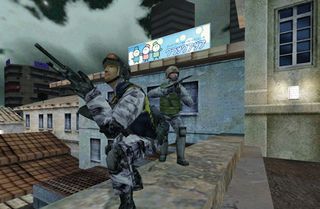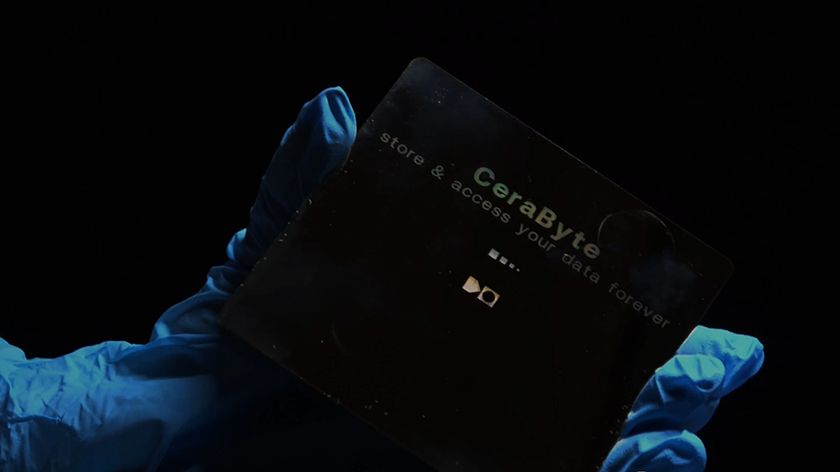The truth about videogame addiction
Just how harmless are our gaming habits?
However, there are people with expertise and solid credentials who also label themselves as having issues of problematic use. Neils Clark told us that he ended up researching the subject precisely because of his own spiral into problematic use of games.
"I've always liked games and I did pretty poorly in college, because I was playing so much Counter-Strike," says Clark. "I got into doing really well at the game and that was never really something that challenged my functioning too much. I would play for eight hours and be late for class, but it was never a huge problem.

"It wasn't until some friends of mine got into Star Wars Galaxies in my year after college [that things got problematic]. I was living with my parents and I was just playing more and more. It got to a point when I was playing twenty hours a day. Think about what that means: you are sleeping for about an hour a day. You're so tuned into that world, and so excited about it, that you're thinking about it and drinking another latte, rather than doing anything else in life."
What Clark identifies in his book is something he has detected in his own life, which is a common escalating behaviour of gamers. It is a side-effect of the way in which we make time for playing games. We carefully prune activities out of our everyday life until we are left with large, uninterrupted blocks of time where we can be left alone with our games.
Understanding how we prune our motivations to make time available for gaming is one of the most important subjects related to habitual over-use of gaming.
Shift in lifestyle
Clark has observed that problematic game use doesn't tend to simply click in because of a particularly addictive game, it comes about because of a gradual shift in our lifestyle. We erode away the time we have for other activities in favour of gaming.
Get daily insight, inspiration and deals in your inbox
Sign up for breaking news, reviews, opinion, top tech deals, and more.
Gamers with problems are those who have pruned their life too far and thus lose the motivation to deal with other issues, such as relationships, jobs, school, or personal hygiene. Usually, these gamers only need to take a step back to recognise these problems and redress the balance.
Unlike addicts of hard drugs, for example, gamers only need to stop playing for a short while for the problems to evaporate. Indeed, Clark was able to do precisely that and it was this experience that has allowed him to cast doubt on much of the research undertaken so far on this subject.
Clark's own unique perspective – as well as detailed research – has helped him understand when clinical and academic research has failed to take into account the other discipline's findings, or when they both failed to comprehend gaming as an activity undertaken by real people.
His insight is into the actual experience of gaming and the way we play: the way any of us sink time into gaming. He now believes that the term addiction needs to be replaced when talking about gaming.
Social embedding
Another aspect of gaming that is often not considered, or not even understood, says Clark, is the way in which it is tied to social embedding. When your friends are gamers, you're probably going to play to fit in. When you're involved with MMOs, where dozens of other people are going to be playing regularly and relying on you turning up to help with organised events, well, the commitment increases exponentially.
People outside the game generally won't understand that, either, and could well see it as a sign of addiction. What it is, instead, is a new kind of social behaviour, and one that's not well understood – responsibility to virtual relationships.
But there's another issue here: the claims that games are chemically addictive. These claims centre around dopamine; the chemical our brains release when we're enjoying something. Thus when games are fun, a lot of this chemical gets released, which reinforces our pleasure in the gaming process.
As we produce more and more of this chemical from longer bouts of gaming, so we become used to having that wave of pleasure. If, we come to rely on gaming for that stimulus then we'll start to experience a craving for games.
Dope-amine?
But there's an even deeper issue here – anything that releases dopamine in the brain is likely to reinforce brain maps, which are the paths of neurons that build up when we repeat an activity. As you play more and more games, your brain rewires itself to become better at playing them and, more importantly, it begins to expect that you'll play them.
To understand this idea, it's best to look at the work of people like Norman Doidge, a psychiatrist who wrote the book The Brain That Changes Itself. The brain, says Doidge, is not a fixed piece of hardware like a computer, but more like a muscle that can be moulded to suit a variety of different tasks by being exercised.
In other words, the brain is malleable and can be radically changed through use. So profound is this malleability, or plasticity, that repetitious game-like therapies have been developed to help rewire brains. These therapies are then used to assist people with learning difficulties and even ameliorate some of the symptoms of conditions like autism.
It's a radical frontier for neurology. Of course, if game systems can be used clinically to reshape brains, we have to wonder what excessive use of games for entertainment might be doing to our grey matter.
Clark, who quotes Doidge in his own work, observes that "the thing about brain plasticity is that the connections in our brain are competitive, so learning something really well in a game – what is that competitive with? There are game therapies that we could champion, but games could also promote bad learning."
Current page: The gamers with a problem
Prev Page Does gaming addiction exist? Next Page Are games teaching our brains bad behaviours?











